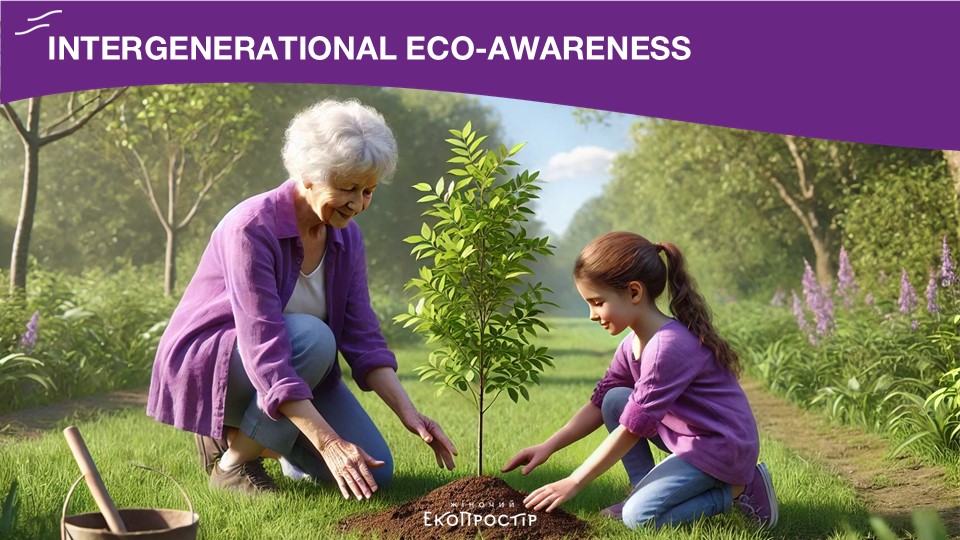
Why is intergenerational eco-awareness important for achieving the Sustainable Development Goals (SDGs)?
Building eco-awareness across generations is one of the key elements in achieving the SDGs. Environmental education and culture must be passed down from older generations to younger ones and vice versa, to preserve natural resources and ensure a sustainable future for all.
Here’s why intergenerational eco-awareness plays a crucial role:
The older generation can share their experience and knowledge about the rational use of resources, nature conservation, and traditional ecological responsibility with the youth.
Young people bring new ideas on integrating modern ecological practices into everyday life. Children adopting eco-conscious approaches from an early age create new solutions for future generations.
Developing eco-awareness within families ensures that sustainable development principles become a part of everyday family life. From sorting waste together to responsible consumption – each family member can be involved in cultivating an eco-conscious culture.
How to foster intergenerational eco-awareness?
- Discuss environmental topics within the family.
- Show children examples of conscious consumption and respectful attitudes toward nature.
- Participate in family and community ecological initiatives, making it a tradition.
- Support youth projects that promote the achievement of the SDGs and involve young people in decision-making.
- Listen to your children, their needs, and concerns, as this helps them feel important and allows you to see new ideas and creative solutions to many problems.
Eco-awareness is an investment in the long-term future. Raising environmentally responsible youth ensures that our natural resources will be preserved for future generations and the SDGs will be achieved.
Let’s work together to pass on a clean planet and a sustainable future to our children and grandchildren!